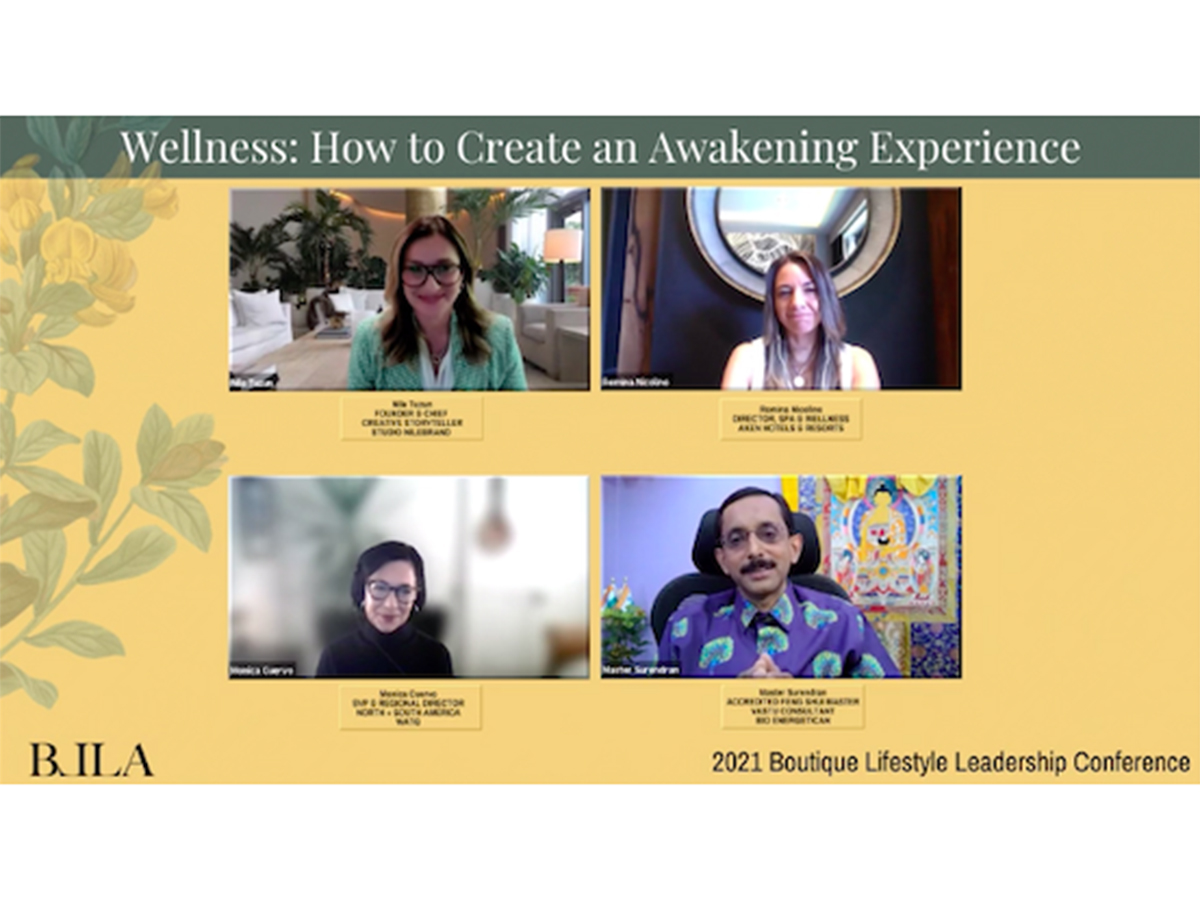Kicking off the 2021 Boutique Lifestyle Leadership Conference by BLLA, leaders gathered to discuss how wellness in personal spaces relates to the boutique hotel industry. Moderated by Nile Tuzun, founder/chief creative storyteller, Studio Nilebrand, she began the discussion by noting that wellness is a critical aspect of hotel design, especially how it uplifts the human spirit.
“Great design in hospitality is meant to draw the guests into spaces and create a visual narrative that they can remember long after their checkout experience,” Tuzun said.
Romina Nicolino, director, spa & wellness, AKEN Hotels & Resorts, explained that humans are exposed to a large number of stimuli that interfere with their moods so, the space that surrounds people can cause a high level of stress or conversely, take them to a place of well-being.
“We are working to create places to make each guest feel unique and especially to improve their quality of life,” Nicolino said. Color palettes, material quality and lines and shapes all contribute to the mood of a space, she added. “We design each spa in the parameters of the wellness architecture, where especially, less is more.”
Multi-sensory design is also important, Nicolino noted, and added that AKEN Hotels & Resorts tries to combine its philosophy of wellness with the architecture.
“[Design] has to do with touching all of the senses,” said Monica Cuervo, SVP/regional director, North + South America, WATG. “So many aspects of our stay at a hotel have to do with all of those little details, where you’re able to dine, areas that you’re able to pull away for a period of reflection, being able to provide and create these niches throughout a hotel…so important to the overall guest experience.”
Master Surendran, accredited Feng Shui Master, Vastu consultant/bio energetican, fenshuiserver.com, defined wellness as a total process of having physical, mental and social well-being, all working to bring out the best in people and their contribution to society. It’s not just the absence of illness, he explained, but it’s a combination of many things. So, the place where you live or stay, or a hotel or spa, if connected to wellness, must create the right atmosphere for the person.
“The space has to be in synchronicity with the occupants. I walk into a wellness spa, the first thing I look at is the architecture of the building, how inviting the space is, what is the feel in the lobby,” he said.
He added that the human body has an energy, buildings have an energy and that everything in the universe pulsates to bring things to a common point. In other words, the human body is a measure of all things in the universe and everything contributes to wellness.
“How you bring in the feel-good factor is the most important key to creating wellness,” he said, bringing together the physical, mental and social components to create happiness.
Nicolino explained that hotels should think comprehensively in this way, and consider the whole journey of the guest to make a lasting impression.
“Part of our responsibility is to create and design amazing spaces and experiences that our guests can have an impression with and return home and possibly create those within their home, which I think many people are yearning to do post-pandemic,” Cuervo said.
Master Surendran agreed, noting that it’s important for guests to not only copy these experiences, but also adopt these practices in their daily lives.




